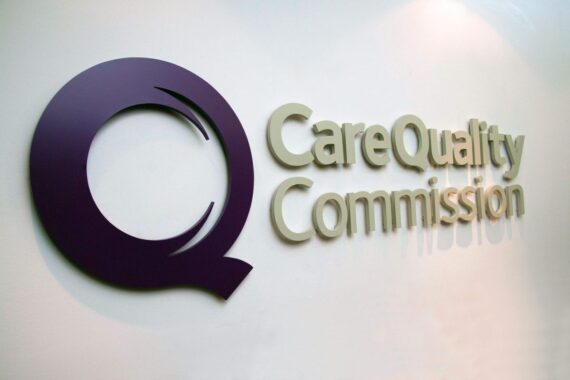GP practices should be able to show ‘how they assure themselves’ of physician associates’ (PAs) ‘competence’ as part of CQC inspections, the watchdog has said.
The CQC has released guidance on PAs and their supervision by doctors as part of a series of documents ‘clearing up common myths’ about inspections of GP and out-of-hours services.
It recommended that practices should only employ PAs who are on the Physician Associate Managed Voluntary Register (PAMVR), which ‘acts like a GMC register’, but it is not statutory.
But since the GMC is currently working towards becoming the professional regulator for PAs, there will be changes to the way PAs will be required to give evidence of their knowledge, the CQC added.
The document said: ‘The profession is moving closer to being regulated by the GMC. This means that there are changes to the way in which physician associates will be required to evidence their ongoing competency and up-to-date knowledge in practice.
‘Providers should be able to show how they assure themselves of the governance and ongoing competence of physician associates.’
The document also reiterated that physician associates ‘can supplement and complement but not replace’ GPs, nursing staff and other members of the practice team, and pointed to RCGP guidance which said that PAs ‘must always work under the supervision of qualified GPs’.
It added: ‘Providers must make sure staff are competent, and they must provide appropriate supervision and oversight.
‘A senior medical member of the clinical primary care team should provide day-to-day supervision of all clinical staff under their direction and control.’
Organisations should identify an individual at GP partnership or ICB level who is ‘responsible for the supervision and oversight’ of PAs.
‘It is important to establish local processes to govern how these professionals are deployed and supervised – this is to ensure safe, high-quality care, and to support effective multi-disciplinary working,’ the guidance added.
Practices should also make sure that the supervisor is ‘easily accessible’, that staff know who the supervising member of staff is and that staff ‘have enough time to supervise’, as recommended by the BMA.
On prescribing or administering medicines, the CQC said that there should be a ‘standard operating procedure’ in place to show how the prescription is raised and monitored.
It said: ‘Physician associates can recommend prescriptions for signing by a GP, but the prescriber remains responsible and accountable for the prescription they issue. They need to be assured of the appropriateness of the consultation and the medicine being prescribed.
‘Physician associates cannot prescribe or issue medicines using Patient Group Directions (PGDs). They can administer medicines by a Patient Specific Direction (PSD).
‘There should be a standard operating procedure (SOP) in place to show how the prescription/PSD is raised and monitored. This would be considered best practice.’
The CQC added that as part of its inspections it will assess how practices ‘complete safe recruitment processes’ and that there are ‘clear’ responsibilities, roles, systems of accountability and ‘good governance’.
The watchdog started to roll out its new GP practice assessment framework from November last year.
It still uses five key questions (safe, effective, caring, responsive and well-led) and a four-point ratings scale (outstanding, good, requires improvement and inadequate) but as part of the changes, the CQC introduced six new ‘evidence categories’ to organise information under the statements.
These new categories include people’s experience of health and care services, feedback from staff and leaders, feedback from partners, observation, processes and outcomes.
The CQC is set to face a review into its ‘operational effectiveness’ led by North West London ICS chair Penny Dash.

















One GP supervising ten PAs is the goal here I think. Yeah, PAs do all the ground work and the supervising GP shoulders the risk. Oh the complaints, inquests and GMC referrals that are to follow. No phanks!!
I love telling this———for many years I signed off all my letters as a Locum G.P.———-then, over night courtesy of the P.C.T. I became a G.P. Associate
If PAs cannot prescribe they should not be seeing patients independently in the GP setting. How condescending of them to say that the GP who signs will be accountable. How ignorant and easy it is to shift the blame. Will there be protected time for the GP to review every single patient that the PA has asked for a prescription? Where will that GP get the time to ‘review’ every single patient that the PA has seen – to review safely the GP will have to see that patient also face to face, examine, take a history and then assess suitably of the prescription requested by the PA. This is not practical! instead of the GP focusing on their own patient list, they have to shoulder the burden of extra assessments done by a PA. In reality no GP has the time to do this safely! Prescriptions just get signed. What an insulting comment. Why not just hire a GP who can do everything!!! Without the need of ‘supervision’. This is frankly so insulting. And why are practices pushing this into the salaried GPs!!!
PAs are incapable of independent practice.
PAs cannot prescribe
PAs cannot request investigations with Ionising Radiation.
PAs clinical decisions need to be crosschecked by a GP for each consultation.
The supervising GP caries all the medicolegal risk
How did anyone ever think PAs were suited to General Practice?
Every prescription should be reviewed by the responsible GP. To see if it is appropriate once would need to know the history and examination too…..if those can be relied on. Good luck. They’ve only got 2 years of training.
The nail in the coffin of General Practice will be Lord Darzi, who will no doubt decree PAs can/ should replace GPs .